Switching from driving to work to walking, cycling, or taking public transit may help commuters lose weight according to an observational study. By analyzing responses to the British Household Panel Survey from 2004-2007, researchers have found making the switch results in an average weight loss of one kg. The longer the commute the stronger the associated […]
The Cost of Smoking: A Manitoba Study
Cigarette smoking costs Manitoba’s public healthcare system an extra $244 million a year, according to a new study from the Manitoba Centre for Health Policy. The report also shows that the percentage of Manitobans who smoke is steadily dropping. In 1989, 22% of Manitobans smoked daily and 65% were casual or former smokers. By 2011, these […]
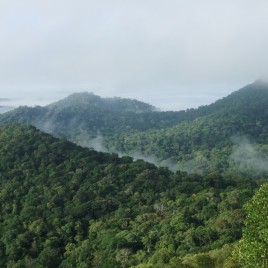
Only 1 per cent of Amazon tree species store half of carbon
A few species of large trees in the Amazon are responsible for half of the carbon storage and productivity of the Amazon rainforest, according to new research. The authors analysed more than 200,000 trees across 530 forest plots in the Amazon rainforest. They found that half of the carbon stock is controlled by only 150 […]
Toxic algae can “smell” predators
Algae can smell predators coming their way, according to a new study. Small crustaceans, zooplankton copepods, feed on algae and researchers observed that they release small fat molecule called copepodamides into the water. When exposed to these molecules an algae, Alexandrium minutum, also known to form toxic algal blooms, will increase 20-fold their paralytic toxin […]
Mega-cities face challenges around the world
A study of the world’s megacities, those with a population greater than 10 million people, highlights the difficulties in resource use facing developing and developed cities around the world. As of 2010, there were 27 megacities around the world, and it is likely there will be 10 more by 2020. Developed cities, such as New […]
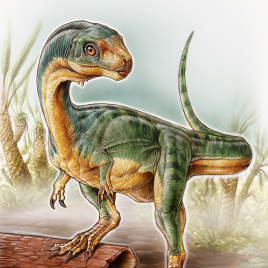
“Platypus” dinosaur discovered by seven-year-old boy
A new species of dinosaur seemingly made up of parts from other dinosaurs, similar to the modern day platypus, has been found by seven-year-old Diego Suárez in Chile. The species was named after Suárez, Chilesaurus diegosuarezi, and belongs to the theropod group of dinosaurs and is closely related to the Tyrannosaurus rex. However the Chilesaurus […]
Car seats are dangerous for sleeping infants
Researchers examining instances where infants and young children died in sitting or carrying devices recommend that parents do not leave their child sleeping in these devices unattended. The team analyzed the records of 47 deaths in the US associated with sitting and carrying devices such as car seats, slings, and bouncers. The analysis showed that […]
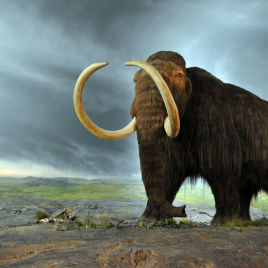
Discovering the hidden secrets of the woolly mammoth genome
Complete genome sequencing of two woolly mammoth (Mammuthus primigenius) specimens that lived approximately 4,300 and 44,800 years ago has been completed by researchers. The younger specimen was a member of one of last surviving mammoth populations. The researchers concluded that the woolly mammoth experienced a temporary population decline before recovering. This resulted in a reduction […]
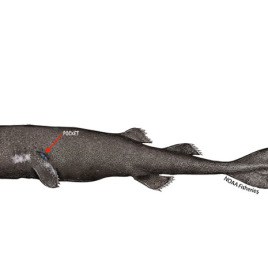
Rare Pocket Shark found
A small and rare species of shark has been observed for the second time only in history. Only 5 and a half inches long, it’s called “pocket” because of a distinctive ‘pocket’ gland above the pectoral fin. Researchers have found the rare specimen in the frozen remain of midwater trawl survey performed in the northern […]
Physicians and veterinarians should collaborate to make pet owners healthier
A group of physicians is recommending certain precautions and greater collaboration between veterinarians and physicians to reduce the risk of diseases associated with owning a pet. Pets are a potential source for more than 70 human diseases yet the researchers who reviewed existing studies found that physicians generally fail to regularly discuss the […]
Drinking 170-year-old champagne for science
Tasting and chemically analyzing 170-year-old champagnes recovered from the Baltic Sea in 2010 has revealed some features of 19th-century winemaking practices. Researchers compared the chemistry of the historic bottles to that of modern champagnes and found the recovered bottles had less alcohol but higher levels of iron, copper, sodium and chlorine. The discovery of traces […]
Smoking, respiratory health and Canada’s aboriginal people
Aboriginal peoples living in Alberta have a greater risk of developing a major respiratory disorder than non-Aboriginals, according to a new research. The prevalence of chronic obstructive pulmonary disease (COPD), mainly caused by smoking, between 2002 and 2010 in Alberta in people 35 years and older were higher for First Nations (11 per cent), Inuits (nine […]
Could maple syrup help cut use of antibiotics?
An extract of maple syrup makes certain dangerous bacteria, such as E. coli, more susceptible to antibiotics, a McGill study has found. The researchers found maple syrup is a rich source of phenolic compounds which are capable of repressing a number of bacterial genes linked to antibiotic resistance. While this is just a first step, […]
Scientists genetically modify human embryos
In a world first, scientists have reported editing the genomes of human embryos. Chinese researchers using ‘non-viable’ embryos which cannot result in a live birth in order to attempt to modify the gene responsible for a potentially fatal blood disorder called β-thalassaemia. They used a gene-editing technique known as CRISPR/Cas9 (pronounced ‘crisper’) which allows you to […]
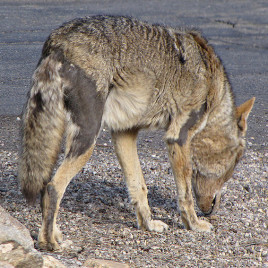
Why coyotes move to the city
Sick coyotes are more likely to seek easily accessible food sources such as garbage in developed areas according to a new study. Across North American cities reports of coyote-human problems have increased, and biologists are trying to understand why. The authors used GPS collars to follow 19 coyotes in the Edmonton area. Half of the […]
A new test to confirm heart attacks within one hour
A study has shown a new test can almost always determine if a patient suffered a heart attack within the first hour of it occurring. The study examined 1320 patients presenting to emergency departments and accurately diagnosed 75 per cent of the patients. The remaining 318 patients were placed in the “observational zone”, and 59 […]
